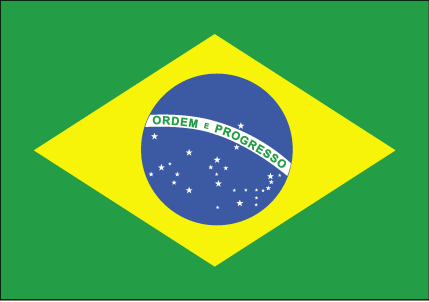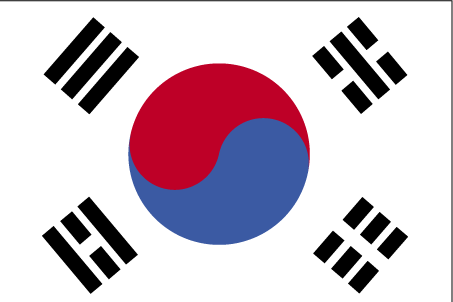Resolution #457
 |
The question of peacebuilding in post-conflict areas. |
| Committee: DISEC | |
| Main Submitter: Denmark | |
| Submitted: 15/02/2025 13:45 |
| Status |
|---|
| Passed cosubmitter sheet validation |
| Approved by approval panel |
| Selected for debate by secretariat |
| Passed by committee (DISEC) |
Committee Voting
| For: | 44 |
| Against: | 1 |
| Abstentions: | 4 |
Options
Co-submitters
 | Albania |
 | Brazil |
 | Finland |
 | Pakistan |
 | Republic of Korea |
 | Ukraine |
 | USA |
Resolution
FORUM: DISEC
The question of: Peacebuilding in post conflict areas
Main submitter: Denmark
Co-submitters: Albania, Brazil, Finland, Pakistan, South Korea, Ukraine, USA
Reiterating the details of UN resolution no. 60/180,
Recalling the principles and purposes of the UN charter,
THE DISARMAMENT COMMITTEE,
1. Calls for the creation of a new sub-body within the already existing UN Peacebuilding Commission (PBC) which will be tasked with the implementation of this resolution, it will be include a collaboration of representatives from the UN Development programme, relevant member states as decided by the PBC, relevant bodies including necessary NGOs, the UNHCR, and UNICEF, and will fulfill the following responsibilities:
a. be responsible for the distribution of funding within this resolution, with it being provided by the world bank, paired with oversight and advice from bodies such as the ECOSOC committee to ensure effective use of resources, the committee should take specific care to ensure funding provided to member states is used properly and not exploited by corruption, by use of monitoring mechanisms within such organisations
b. convene annually in New York to discuss the implementation of this resolution, at which areas for improvement will be properly addressed and planned out, the meeting should also take a focus on recognising emerging challenges in relation to peace buildin
c. the creation of a report to the UN secretary general paired with availability for the public to access, after each one of these meetings, conducted by a special committee rapporteur, this report will detail progress on the issue to ensure a comprehensive approach
d. the submission of a referral to the UNSC that will request the deployment of peacekeepers in post conflict states deemed to be at a particular risk of instability by the UNSC and UNPBC, these peacekeepers will be responsible for the protection of civilians and the discouragement of tensions among conflicting groups or parties;
2. Requests that the PBC work to establish monthly gatherings local neutral locations between conflicting parties states deemed to be at a particular risk of instability, they will facilitate open and continuing dialogue and act as mediators, to ensure that tensions do not rise again, this may include measures such as open mutual agreements of trust, the establishment of clear and mutually agreed peace treaties in areas in which this has not yet been achieved;
3. Encourages the expansion of Disarmament, Demobilisation and Reintegration (DDR) programs in order to provide support for former armed groups and combatants, as well as civilians, including displaced persons and survivors of violence, through methods including but not limited to:
a. the introduction of weapon buyback programmes, involving representatives from local authorities as well as the United Nations, with locations where members of the population can avail of this service in all cities and towns across post-conflict areas, such as implementing the construction of safe disposal zones for weapons, in conjunction with the United Nations Peacebuilding Commission or the use of appropriate technology in order to locate these weapons, such as satellites and drones
b. the provision of alternative livelihood opportunities and community based support programmes to former combatants to help in re-integration to society, involving the establishment of education programmes, as well as vocational training and job creation schemes;
4. Encourages economic relief and development programmes to ensure greater investment into vital public services such as education, transport, healthcare, sewage, and other necessary infrastructure and to develop self sufficiency and functionality in post-conflict zones through all means necessary including but not to be limited to:
a. debt relief programs facilitated by the IMF and UNDP
b. increasing foreign investment from both UN organisations such as the UNDP, governmental organizations and private investment from NGOs and corporations, it will be ensured that these funds will be used correctly by giving these funds as aid that is linked to improvement in infrastructure and public services, and have these funds overseen but a joint committee made up over representatives of the UNODC and the IAACA
c. the assistance of post conflict states, especially those affected by civil war, in developing functional, equal and fair governments with adherence to democratic principles and standards, via regular oversight from relevant organisations such as the UNDP
d. that the IAACA partners with the UN Office on Drugs and Crime (UNODC) to oversee governmental spending in the early stages of post-conflict rebuilding and the delivery of aid to post-conflict area to tackle the widespread issue of corruption;
5. Recommends the creation of a scheme (by UNICEF, NGOs, the UNHCR and the WHO) for the delivery of humanitarian aid that would ensure the Delivering both emergency aid to tackle the short-term effects of conflicts, such as such as clean water food, essential medical treatments and temporary shelters to these countries, it would also focus on ensure access to mental health professionals certified by the UN in order to assist mentally scarred civilians, these professionals would be trained by WHO, these volunteers would aid civilians through means such as but not limited to therapy and counselling sessions, diagnosing specific disorders caused by conflict such as Post Traumatic Stress Disorder (PTSD) and providing them with the correct medication for said disorders;
6. Asks member states to work in conjunction with relevant member states to ensure the protection, safety, and well-being of humanitarian workers operating in conflict zones, disaster areas, and other high-risk environments by guaranteeing that humanitarian workers are provided with adequate security measures ensuring their physical safety while delivering aid, in addition promoting mental health and psychosocial support programs to address the unique psychological challenges faced by humanitarian workers, including trauma, stress, and burnout, ensuring that workers have access to professional counseling and wellness resources;
7. Further calls for the creation of frameworks that allow for the re-installation of regional governments and leadership roles if necessary during rebuilding to give the affected nation the sovereign right to govern themselves while ensuring that funding and similar materials are used for the good of the affected region through rebuilding and rehabilitation instead of corruption while being overseen by relevant bodies and bodies outlined in this resolution through means such as but not limited to:
a. upon referral to and confirmation from the Security Council, the creation and establishment of a UN-Supervised Transitional Authority (UNSTA) which will act as a temporary governing body co-managed by the UN regional organisations such as the AU and the EU and local leaders
b. ensuring representation from all ethnic, political and religious groups to prevent favouritism and one sidedness which would avoid one-party dominance an aspect if overlooked could reignite tensions in the region
c. implement a gradual transfer of power by initially having the key government functions such as security, judiciary, finance remain under UN oversight and as institutions stabilize, governance shifts progressively towards local control
d. calls for the establishment of legal and judicial reform initiatives in post-conflict states to promote long-term stability and the rule of law by:
i. For the creation of independent judicial institutions, ensuring that they are free from corruption and external political influence through oversight by relevant UN bodies such as the UNDP and the Office of the High Commissioner for Human Rights (OHCHR);
ii. Providing training programs for judges, law enforcement officials, and legal professionals to enhance their capacity in handling war crimes, human rights violations, and transitional justice measures;
iii. The establishment of truth and reconciliation commissions where necessary to address grievances, promote national healing, and prevent the recurrence of violence;
iv. Assisting post-conflict governments in drafting and implementing legal frameworks that protect human rights, promote democratic governance, and establish clear legal recourse for victims of conflict-related crimes.